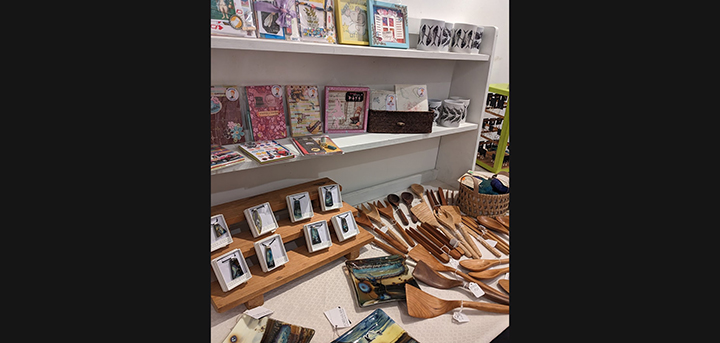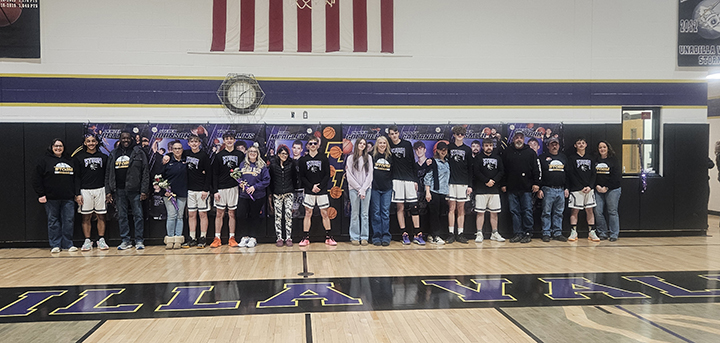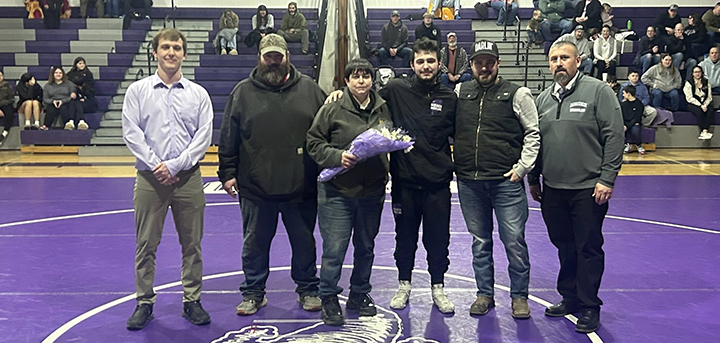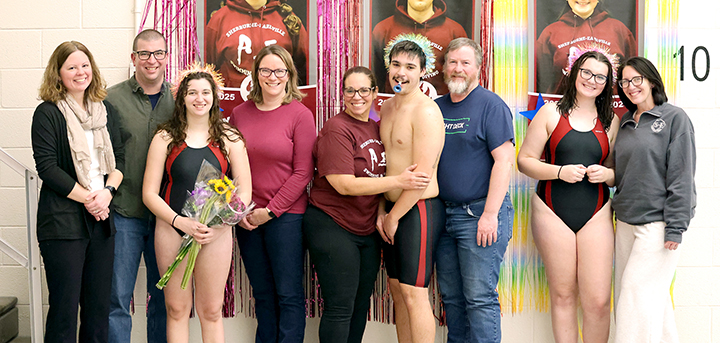Tilting at Windmills: Sky Blue
It was one of those days.
One of those terrible, terrible days. That particular Wednesday had slammed all of the spirit out of Mrs. Armitage, and she was feeling very, very sorry for herself.
First was the visit to the nephrologist.
“The prognosis,” Dr. Shurafa began, “is good. For a 72-year-old woman, you are in great shape.” His final words, however, sucked all of the air out of the room. “And if somewhere down the road we have to take out a kidney, no big deal. You’ve got two.”
Where does one go after receiving news like that? Church? Temple? A yoga class? The Himalayan Mountains? The nearest saloon?
Then there was the phone call from Bernice. Mrs. Armitage’s late husband Roger had been perfect in every way, except when he’d insisted on naming their only daughter after his favorite great aunt. She – Mrs. Armitage – was convinced that if the girl had been named Elizabeth or Lilly, she would not be, as Bernice was now, addicted to plastic surgery, ending her third marriage, and…
It didn’t bear thinking about.
Without telling her feet where she was going, Mrs. Armitage strode past the James Madison High School and past the T. D. Bank onto the sidewalk running along the north side of Riverside Park. She turned left on Antelope Way, and began to wend her way carefully (she was wearing two-inch patent leather high heels) down the cobblestone lane that ended at the entrance to the zoo.
When Mrs. Armitage reached for her purse to pull out her membership card, Olivia, at the ticket window, recognized her and waved her inside. On most days, the mere sight of the zoo’s sidewalk gardens would have brought a smile to her face. And on this splendid April day, with red and yellow tulips, purple grape hyacinth, and every shade of orange and yellow daffodil blooming crazily, she should have been bursting with joy.
But she was not. As one foot followed the other, Mrs. Armitage’s mind shot back to the dreadful incident she had witnessed that morning. First, she’d noticed a police car outside Mr. and Mrs. Amsler’s house. Bernard Amsler was a 97-year-old escapee from the virulently anti-Semitic U.S.S.R. Elsie Amsler was a 96-years-old survivor of a Nazi concentration camp. Both were standing in the street, tears streaming from their eyes, tremblingly listening to an unsmiling policeman and staring at an enormous swastika, smeared in wide strokes of dripping black paint, on their garage door.
Ellie McGonigal, who lived across the street, had given the police a video taken by her front door surveillance camera. It clearly showed the new couple on the block – the ones with the adorable twin daughters and Ukrainian and rainbow flags flying on their lawn – at 5:17 that very morning, in the act of painting that symbol of hate on the elderly Amslers’ garage door.
Poor Bernard. Poor Elsie.
Mrs. Armitage continued her trek into the zoo, striding past Pepito, the friendly porcupine; Hercules, the adorable red panda; and Samuel, the often-stupefied looking sloth. Usually, she would stop to greet them all. Today, she did not spare them a glance. Her brisk walk slowed to a stroll, and her stroll slackened to a shuffle. Finally, she arrived at the Children’s Courtyard, where Beth-Ann Freeman, the zoo’s events’ coordinator, frequently scheduled child-friendly events.
In the past, Mrs. Armitage often had sat there on a park bench watching children play early 20th century games like kick-the-can, tag, stickball, and skip-rope. The joyful noises they made (temporarily having been liberated from computer screens and thermostat-controlled environments) cheered the soul.
Earlier that morning, and in honor of some occasion or another, a zoo employee – most likely Beth-Ann herself – had drawn in bold, colorful chalk, the outline of something that Mrs. Armitage had not seen in over fifty years. To her surprise and delight, she found herself staring at a perfectly rendered hopscotch game.
Light blue chalk. Bright pink chalk. Mellow yellow chalk. Pale lavender chalk. Lime green chalk.
For easily two minutes, Mrs. Armitage simply stared. Her face was expressionless, but her eyes, second-by-second, brightened with the glow of old yet familiar recollection.
She was looking down at large square boxes, each big enough for Big Boy Feet, numbered and stacked individually and in pairs atop each other. “Home” was box “1.” Side-by-side above that were boxes “2” and “3.” Next, a single box “4.” Above that, again side-by-side, were boxes “5,” “6,” and so on, ending in a gracefully drawn half-moon containing, in wide, bold letters, the triumphant words: SKY BLUE.
Mrs. Armitage looked down the path leading to the Children’s Courtyard; she turned her head and looked up the same path. Other than the tortoises, lemurs, and Milton and Mandy, two golden tamarin monkeys (why did they always look so angry?), she was absolutely alone. No one to watch when she slipped off her patent leather shoes. No one to observe when she searched the grounds for a small rock to use as … what was it called?” Oh, yes. A “shooter.”
And no one to cheer or boo when she threw the shooter into the first hopscotch square.
Bullseye!
Then, barefoot, Mrs. Armitage hopped over square “1,” jumped two-footed into boxes “2” and “3,” and did not stop until her last two-footed landing in the halfmoon at the top, where she joyfully shouted – “Sky Blue! She did a jubilant turnaround at boxes “8” and “9” for her return trip home. After which, Mrs. Armitage staggered away from the hopscotch game, and fell onto the nearest bench.
A little out of breath, she said aloud to herself, “Thank you, Zoo.” Then, her heartbeat slowing and her spirits rising, she added, “Thank you, Events’ Coordinator. Thank you, Childhood. Thank you, Rambunctious Inventor of wonderful children’s games.”
Mrs. Armitage slipped her feet into her shoes, opened her arms against the back of the park bench, threw back her head, and felt the sun warming her face. But still not finished with her redemptive soliloquy, she asked the tortoises in the field on her left, "Who needs two kidneys anyway? One is enough. Two seem somehow … greedy.”
To the lemurs sharing the field with the turtles, she remarked, “I may love my foolish daughter, but I cannot fix Bernice. She has to do that herself.”
To the grimacing tamarin monkeys who always seemed annoyed, she said, “As far my neo-Nazi neighbors go, they may have hate in their hearts and black paint staining their fingertips, but they are an anomaly. An aberration. The rest of the people on my block are darlings. Tomorrow, I will bring Bernard and Elsie Amsler an armful of pink roses.”
Lastly … finally … Mrs. Armitage lowered her head, gazed down at the hopscotch brightly chalked on the ground before her, and said, “Self-pity be damned.”
Then, she smiled.
Copyright © Shelly Reuben, 2025. Shelly Reuben’s books have been nominated for Edgar, Prometheus, and Falcon awards. For more about her writing, visit: www.shellyreuben.com









Comments